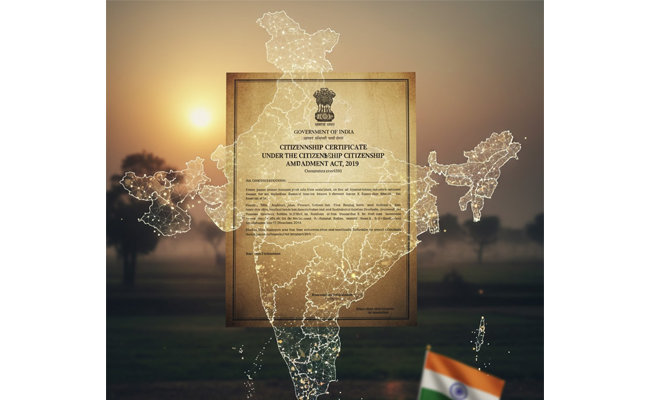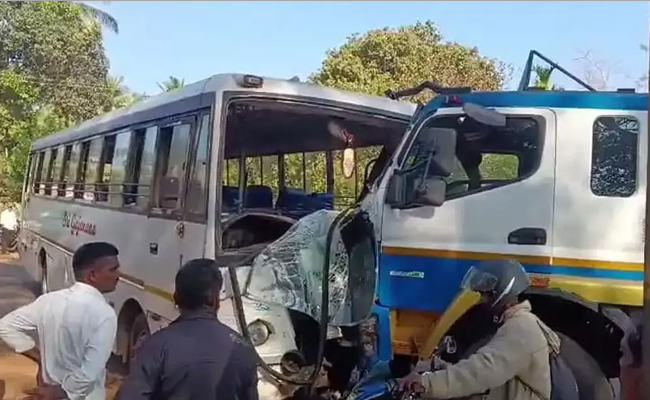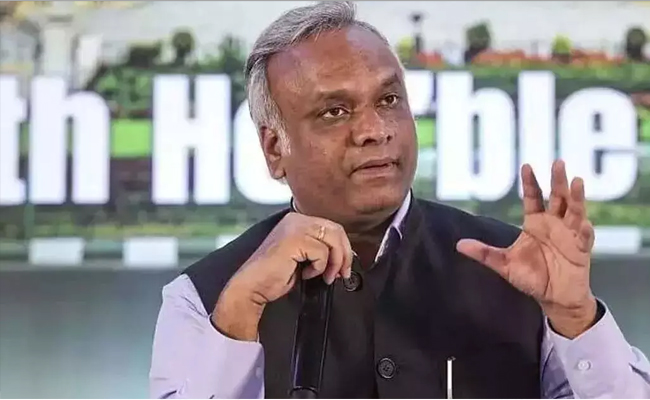Bengaluru, Sep 7: The Indian space agency's crew module, that was used and recovered in a 2014 unmanned mission, has been a star attraction at the 6th Bengaluru Space Expo being held here.
"An unmanned crew capsule that can accommodate up to three astronauts that was tested in 2014 to orbit around the Earth has been exhibited at the space expo for visitors to view," an Indian Space Research Organisation (ISRO) official told IANS here.
A similar capsule, which is a living space and control centre for astronauts, will carry Indians to space for the country's maiden human space mission "Gaganyaan".
Showcased in the space agency's pavilion, the capsule has been the cynosure of all eyes at the three-day space expo at the Bengaluru International Exhibition Centre.
Hundreds of school students and other visitors, making a beeline to the venue, are thronging the pavilion for a glimpse of the crew module and a model of Indian-made spacesuit that will be donned by the country's astronauts for their space mission.
The recovered capsule, made of heat protecting tiles, was launched aboard a Geosynchronous Satellite Launch Vehicle (GSLV) Mk III to re-enter the planet -- surviving temperatures as high as 1,500 degrees Celsius.
The exhibition has also featured pavilions dedicated to student-made satellites and launchers, space start-ups from across the country, and space agencies from countries including Russia, France and Taiwan.
The French National Centre for Space Studies (CNES), Russian space agency's launch service provider Glavkosmos and Taiwan's National Space Organisation (NSPO) were among the space agencies that showcased the satellites and launchers.
Space food packed for Russian cosmonauts put on display by the Glavkosmos also caught the visitors' attention.
The biennial space expo, touted to be the largest space conference in Asia, is being held from September 6-8, with the participation of over 100 exhibitors, space agency representatives and delegates from the US, the UK, France, Russia, and Taiwan, among other countries.
Let the Truth be known. If you read VB and like VB, please be a VB Supporter and Help us deliver the Truth to one and all.
Dehradun(PTI): After undergoing rigorous training at the Indian Military Academy (IMA) in Dehradun, 491 cadets participated in a grand Passing Out Parade on Saturday and will now be commissioned as officers in the Indian Army.
The spectacular parade, held at the historic Drill Square in front of the academy's Chatwood Building, was reviewed by Army Chief General Upendra Dwivedi, who served as the reviewing officer.
Along with 491 Indian cadets, 34 foreign cadets from 14 friendly countries also participated in the Autumn Term 2025 Passing Out Parade.
A total of 525 officer cadets from the 157th Regular Course, 46th Technical Entry Scheme, 140th Technical Graduate Course, 55th Special Commissioned Officers Course, and Territorial Army Online Entrance Exam 2023 Course participated in the Passing Out Parade.
The 'Sword of Honour' and gold medal for securing first place during training was awarded to ACA Nishkal Dwivedi, the silver medal to BUO Badal Yadav for second place, and the bronze medal to SUO Kamaljeet Singh for third place.
The silver medal for securing first place in the 'Technical Graduate Course' was awarded to Officer Cadet Jadhav Sujit Sampat, and the silver medal for first place in the 'Technical Entry Scheme-46' was awarded to WCC Abhinav Mehrotra.
The silver medal for the 'Special Commission Officer Course' was given to Officer Cadet Sunil Kumar Chhetri.
Among the foreign cadets, the first place in merit was secured by JUO Mohammad Safin Ashraf from Bangladesh. The Army Chief's Banner for overall best performance in the Autumn Term was awarded to Imphal Company.
As the parade concluded, helicopters showered flowers on the newly commissioned officers from the sky.
On this occasion, General Dwivedi congratulated the new officers in his address for successfully completing their training. He praised the young officers for their high level of discipline, leadership qualities, and endurance, and urged them to uphold the glorious traditions of the Indian Army and serve the nation with loyalty, commitment, and honour.
General Dwivedi said that joining the army marks the beginning of a lifelong duty and selfless service.
The parents and guardians of the newly commissioned officers were also present during the passing out parade.





